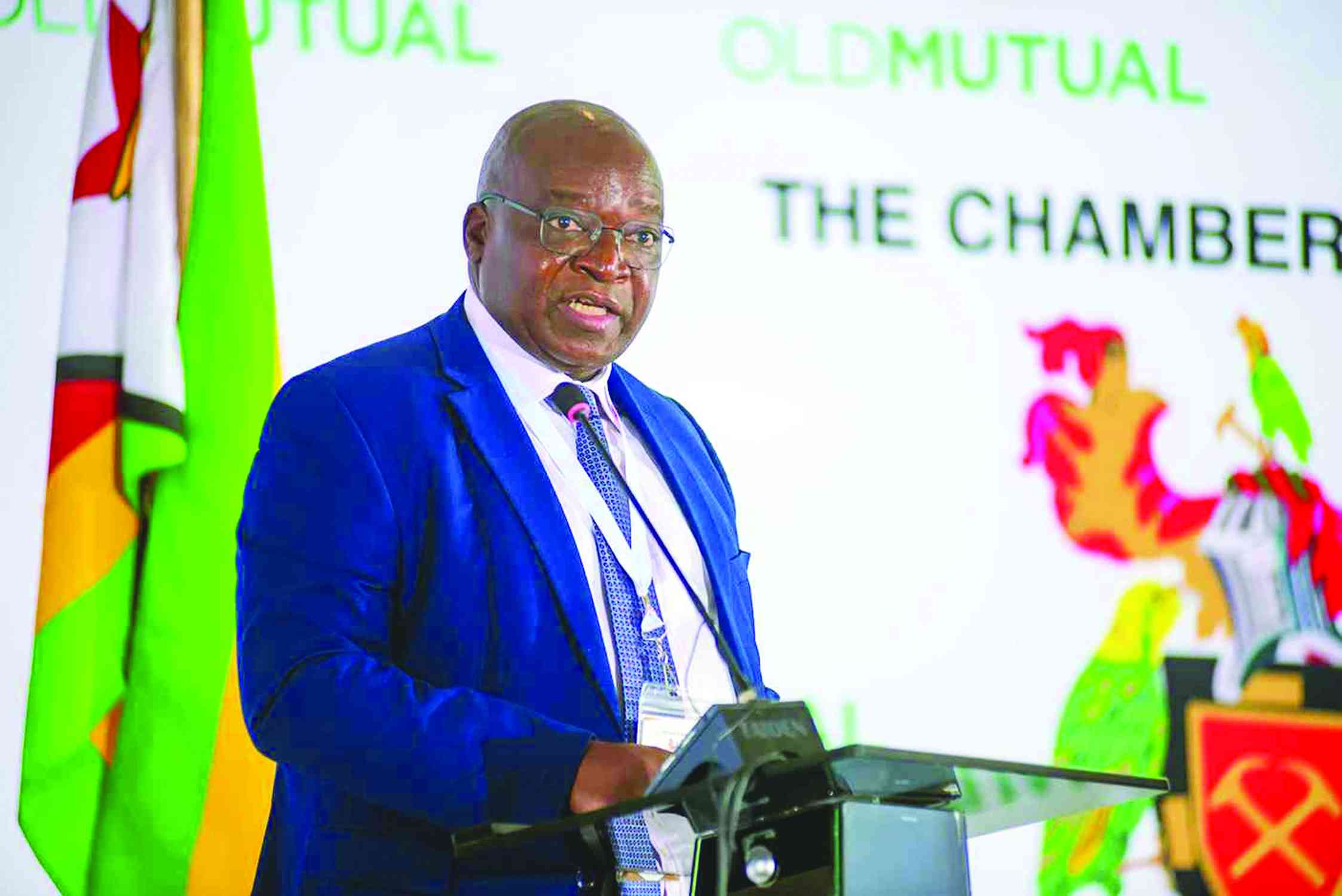
IN pursuit of Zimbabwe's ambitious Vision 2030, which aims to propel the nation towards upper middle-income status, the imperative for robust corporate governance practices has never been more pronounced.
With a clear mandate to foster sustainable economic growth, reduce poverty, and enhance the overall well-being of its citizens, Zimbabwe stands at a critical juncture where effective governance within its parastatal sector can significantly influence the trajectory of national development.
As the country strives to navigate complex socio-economic challenges and harness its abundant potential, the role of transparent, accountable, and ethical corporate governance becomes indispensable.
Zimbabwe has, however, faced challenges in ensuring good corporate governance, particularly within parastatals and government entities. While there are established regulatory frameworks and codes of conduct like the Public Entities Corporate Governance Act, the National Code of Corporate Governance, and statutes like the Companies Act Chapter 24:03, the Zimbabwe Stock Exchange Act (Chapter 24:18), and the Public Finance Management Act (Chapter 22:19), which aim to enhance accountability and transparency in public entities; instances of corruption, mismanagement, and lack of transparency have marred the reputation of many public institutions.
The effectiveness of these measures is limited, it seems, by factors such as weak enforcement, corruption, lack of transparency, lack of capacity and maybe limited awareness of these codes within regulatory institutions.
The repercussions of their shortcomings extend far beyond their organisational boundaries, tarnishing our national reputation.
As a result, Zimbabwe continues to face scrutiny over its corporate governance practices, with concerns raised by investors, international organisations, and civil society groups.
Scandals faced by parastatals have consistently revealed lapses in conformity to the Public Entities Corporate Governance Act and other corporate governance codes.
- Mavhunga puts DeMbare into Chibuku quarterfinals
- Bulls to charge into Zimbabwe gold stocks
- Ndiraya concerned as goals dry up
- Letters: How solar power is transforming African farms
Keep Reading
Some examples that come to mind include:
Zesa
Zimbabwe Electricity Supply Authority (Zesa) faced allegations of corruption, mismanagement, and inefficiency over the years. Scandals related to procurement irregularities, lack of transparency in tariff setting, and financial mismanagement raised concerns about governance practices within the organisation.
NRZ
National Railways of Zimbabwe (NRZ) was embroiled in scandals involving mismanagement of funds, procurement irregularities, and poor service delivery. Issues such as dilapidated infrastructure, failure to pay salaries, and allegations of corruption highlighted governance deficiencies within the organisation.
Air Zimbabwe
The national airline faced numerous challenges, including financial instability, governance failures, and operational inefficiencies. Scandals involving mismanagement of funds, nepotism in recruitment practices, and safety concerns underscored governance lapses within the airline.
ZBC
Recent scandals have underscored governance weaknesses at Zimbabwe Broadcasting Corporation (ZBC), including questionable procurement practices, gross misconduct by senior officials, neglect of employee welfare, financial mismanagement, and lack of transparency.
Nssa
National Social Security Authority (Nssa) has faced allegations of corruption, abuse of funds, and governance failures. Scandals involving questionable investments, irregular procurement practices, and lack of accountability have raised concerns about governance practices within the authority.
Natpharm
Zimbabwe's state-owned pharmaceutical company, grappled with governance challenges and scandals, notably concerning shortages of essential drugs, which were linked to procurement inefficiencies and allegations of corruption. The other irregularities included inflated prices and non-compliance with tender processes.
Reports on financial mismanagement and accusations of misappropriation underscored the need for enhanced oversight.
Additionally, concerns over quality control issues e.g. the distribution of substandard or expired drugs.
These issues are not isolated incidents but are symptomatic of deeper systemic problems within Zimbabwe's parastatal sector.
Weak governance structures, inadequate oversight, and a lack of transparency seem to have created an environment ripe for abuse and malpractice.
There is hesitancy from some talented professionals to engage with parastatals, fearing reputational damage and bureaucratic hurdles and the consequences of this talent drain are significant.
Furthermore, the erosion of public trust in these institutions undermines confidence in their affairs from the public.
The most valuable asset within Public Entities undoubtedly lies in its people. While the Zimbabwe Anti-Corruption Commission diligently addresses misconduct, the question remains whether there is room for more efforts to be directed towards incentivising and promoting adherence to sound corporate governance principles.
Increasing performance enhancement incentives that revisit the fundamental practice of rewarding commendable conduct could further elevate corporate governance standards.
Financial incentives
Financial incentives have always been known to enhance performance. Linking performance-based bonuses or rewards to governance metrics could motivate executives and employees to prioritise governance objectives.
Increased focus could therefore be based on governance performance indicators, such as compliance with regulatory requirements or improvements in transparency and accountability could work.
Recognition and awards
Government efforts to acknowledge and reward outstanding performance are commendable.
Expansion of these awards with increased focus on further incentivizing good governance practices would foster healthy competition and the adoption of best practices, nurturing organisational cultures that prioritise ethical behavior and integrity.
Professional development
The Corporate Governance Unit in the office of the president plays a vital role in providing mentorship and training to parastatal leaders. Further elevation professional development opportunities could even be achieved through tailored training programmes focused on emerging governance trends and challenges and mentorship schemes pairing experienced leaders with emerging talents.
It can also be through peer-to-peer learning forums where leaders can exchange best practices.
This is in addition to establishing partnerships with academic institutions or industry experts to provide specialised training modules on governance-related topics, introducing certification programmes or accreditation mechanisms for governance professionals to standardise skill sets and ensure continuous improvement in governance practices across parastatals.
Stakeholder engagement
Improving stakeholders in governance processes and decision-making significantly improves transparency, accountability, and performance. Improving mechanisms to solicit feedback and address concerns from shareholders, customers, employees, and communities enhances governance effectiveness.
Long-term performance contracts
Implementing long-term performance contracts for executives with governance targets can align their interests with those of the organization and its stakeholders.
The government has been proactive on introducing these already for Public Officers. Performance contracts with executives that include specific governance objectives, such as enhancing board independence, strengthening internal controls, or promoting ethical conduct could even be negotiated, further emphasising good corporate governance objectives.
Raising staff awareness
This awareness empowers staff to make informed decisions aligned with governance standards, thereby reducing the likelihood of misconduct, fraud, or non-compliance.
Additionally, well-informed employees are better equipped to contribute to organisational effectiveness, risk management, and overall performance.
Raising awareness through training programmes, workshops, and communication campaigns can enhance staff engagement, commitment, and adherence to governance practices, ultimately contributing to improved governance outcomes within parastatals.
Whistleblower protection
Ensuring that those reporting misconduct are shielded from retaliation, fosters transparency and ethical behavior.
By offering a safe reporting avenue, organisations encourage accountability and trust.
This practice aids in promptly detecting and addressing governance failures, cultivating a culture of integrity. Employees are more likely to report irregularities if assured of anonymity and action.
By leveraging these performance improvement incentives in addition to enhanced oversight mechanisms, parastatals in Zimbabwe can create a conducive environment for enhancing corporate governance practices, driving organizational performance, and ultimately delivering value to stakeholders.
This is essential for achieving the goals outlined in Vision 2030 and driving sustainable economic growth in the country.
- Chimbarara is an internal auditor with Family AIDs Caring Trust.











